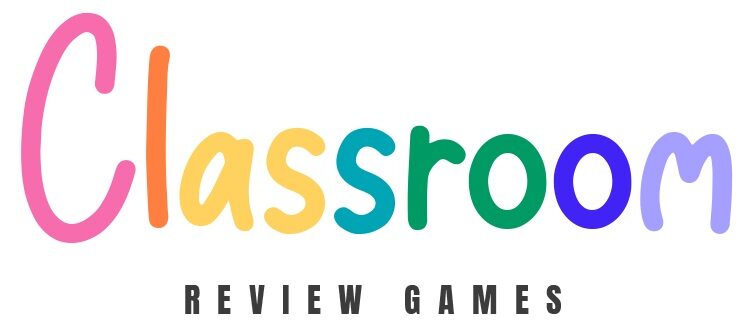9 Quick No-prep Online Games for Students
Looking for quick and easy no-prep online games to play with your students? The best ones are not only fun but also sneak in some learning. They adjust to how well your students are doing, give helpful feedback, and make sure learning is part of the action. Let’s dive into some great last-minute games that you can use right away to make learning exciting and effective without any complicated setup or planning.
1. The Guardian’s Crossword Puzzles
These puzzles are a series of crossword games by The Guardian, where players use across and down hints to guess words and fit them into a grid. This activity enhances general knowledge, vocabulary, and memory skills. For classroom integration, teachers can use these puzzles as a group activity, allowing students to collaborate and solve them. It’s a fun way to engage students in language learning, encouraging them to discuss and share ideas to find the correct words. As new puzzles are regularly added, it offers a continuously refreshing challenge.
2. Sliding Puzzle
This game involves tile puzzles where the objective is to slide the tiles correctly to reconstruct an image. It’s beneficial for students of all ages as it builds problem-solving skills and helps with pattern recognition and memory improvement. The game offers various difficulty levels, with grids of different sizes and options of having digits to assist in finding the correct tile positions. Teachers can utilize this game in a classroom setting to develop students’ spatial awareness and logical thinking skills. It’s suitable for individual play, allowing students to challenge themselves at their own pace.
3. Starfall
Starfall is a comprehensive educational platform that focuses on teaching young students basic language and math skills. It includes a wide array of interactive games and activities that cover speaking, reading, writing, and basic arithmetic. Originally launched in 2002, Starfall has become a popular tool for teaching elementary students, especially those in kindergarten to third grade. The platform is mostly free, with an option for a membership program that unlocks additional games. In classrooms, Starfall can be used to supplement traditional teaching methods, providing an engaging and interactive way for young learners to develop foundational educational skills.
4. Funbrain
Funbrain caters to students from Pre-K to 8th grade, offering games that support learning in math and language. The platform’s design aids in developing problem-solving skills. Notably, it was the original publisher of the now-famous “Diary of a Wimpy Kid” series. The website includes comics, videos, and books that are both educational and entertaining. Teachers can use Funbrain to provide interactive and engaging content that complements traditional classroom instruction, making learning more enjoyable for students.
5. Roblox
Roblox is more than just a game; it’s a platform where students can both play and create their own games. While the games themselves are not always educational, the process of creating them teaches valuable skills in coding and problem-solving. The platform offers a vast array of games suitable for all age groups and provides an intuitive environment for learning game design and coding. In the classroom, Roblox can be used to introduce students to basic programming concepts in an engaging and interactive way.
6. Number Ninja
Number Ninja is a unique educational game that combines math learning with a fun, interactive experience. Players control a ninja character who breaks boxes to reveal numbers, then navigates through the game to find the correct number for a given equation. The game includes obstacles and challenges, enhancing engagement and problem-solving skills. It covers a range of math concepts from basic arithmetic to more complex equations. In a classroom setting, Number Ninja can be an effective tool for making math learning fun and interactive, encouraging students to apply their math skills in a playful environment.
7. Elevate
Elevate is an educational game app designed to enhance a variety of skills including math, writing, reading, and speaking. It features over 40 different games, each targeting specific areas of learning. The app adjusts to the user’s skill level and tracks progress over time. While it is primarily suited for high school and college students, its advanced-level content makes it a valuable tool for older students looking to improve their cognitive skills. Teachers can use Elevate as a supplementary tool for students to practice and improve their skills outside the classroom.
8. Duck Duck Moose
Duck Duck Moose is a developer of educational games for children, offering a diverse range of titles since 2008. Each game focuses on different educational aspects, such as Fish School which teaches shapes, colors, and problem-solving to students aged two to five. Another example is Pet Bingo, designed for children aged five to ten, focusing on math skills. These games adopt various teaching styles, promoting self-study and communication. In classrooms, Duck Duck Moose games can be used to enhance learning in specific subject areas, providing a fun and interactive way for younger students to engage with educational content.
9. Scribblenauts Unlimited
Scribblenauts Unlimited is an imaginative game that encourages creative problem-solving. Aimed at students from 8 to 11 years old, it presents challenges that require creative thinking and spelling skills. Players encounter various scenarios where they must use their imagination to solve puzzles. Additionally, they can create and share their own puzzles, fostering a sense of community and competition. This game is excellent for cultivating creativity in students, making it a valuable tool for teachers to incorporate into lessons that focus on creative writing and problem-solving.
